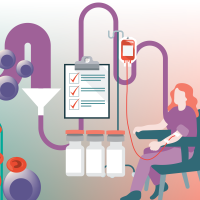AI and iPSCs: current applications for characterization and quality control
Cell & Gene Therapy Insights 2024; 10(1), 191–201
DOI: 10.18609/cgti.2024.029
Induced pluripotent stem cells are a type of pluripotent stem cell generated by reprogramming adult cells to an embryonic state. Similar to embryonic stem cells in terms of morphology and pluripotent marker expression, induced pluripotent stem cells have been found to retain epigenetic memory, including DNA methylation and histone modifications, of the cell type from which they are created [1]. Induced pluripotent stem cells are also susceptible to genetic anomalies arising from the reprogramming process and prolonged in vitro cultivation [2]. Somatic cell reprogramming involves a series of genetic manipulations, potentially inducing mutations, copy number variations, or chromosomal abnormalities. Prolonged culture amplifies the risk of instability [3], leading to unintended alterations in the induced pluripotent stem cell genome, which could compromise their therapeutic utility. In the pursuit of safe and efficacious clinical applications, a thorough assessment of induced pluripotent stem cell-derived cell products across a range of culture stages is imperative. Current methods are characterized by their labor-intensive nature and susceptibility to subjective biases, relying on manual steps to discern induced pluripotent stem cell induction and maturation stages [4]. To overcome these limitations, researchers are exploring the utility of AI and machine learning for greater objectivity and efficiency in the evaluation process. Proposed strategies encompass the identification of specific biomarkers coupled with quantitative gene expression analyses [5], leveraging advances in the field of micro-spectroscopy for precise characterization [6], the adoption of automated imaging systems integrated with analytical algorithms [7], and single-cell analyses to discern heterogeneity [8]. This article outlines the emergence of AI-integration in stem cell research and offers translational insight on the future of induced pluripotent stem cells in regenerative medicine.
